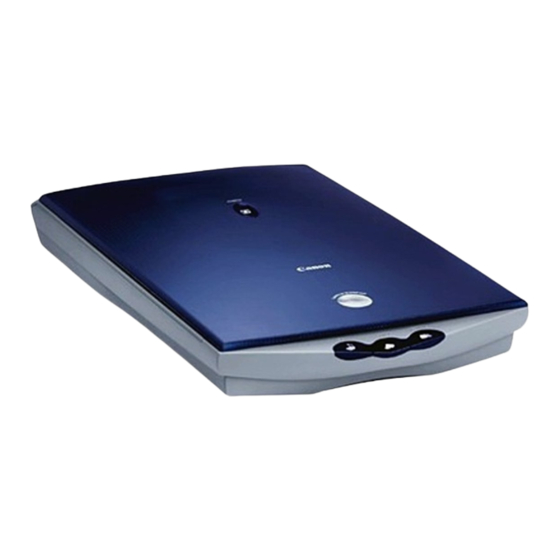- ページ 37
ソフトウェア Canon D1250U2F - CanoScan USB Flatbed ScannerのPDF ユーザーマニュアルをオンラインで閲覧またはダウンロードできます。Canon D1250U2F - CanoScan USB Flatbed Scanner 40 ページ。 For windows
Canon D1250U2F - CanoScan USB Flatbed Scanner にも: 仕様 (2 ページ), クイック・スタート・マニュアル (31 ページ)

Appendices
You can select the format of the files in which scanned images are
saved by the Toolbox. This topic explains the various characteristics
of the different file formats.
BMP File
This is the standard Windows bitmap file format. It is
supported by most Windows application programs. This
format is frequently selected when an image file will
only be used in a Windows environment. The ".bmp"
file name extension is generally assigned to this format.
JPEG File
This is the image format specified by the International
Organization for Standardization's (ISO's) Joint
Photographic Experts Group (JPEG). This format's
compression ratio is its outstanding feature. It can
compress data anywhere from 1/10 to 1/50 its original
volume. However, it utilizes an irreversible "lossy"
compression technique that loses part of the data
during compression. Thus, the file cannot be restored to
its original state and is slightly degraded in quality. If
you repeatedly open, edit and save a JPEG file, the loss
of quality will become more noticeable. The ".jpg" file
name extension is generally assigned to this format. This
format cannot be selected when the Image Type is set to
Black and White.
w w
Contents
Index
37
File Formats
PNG File
The Portable Network Graphics (PNG) format is
gradually gaining wide acceptance as an image file
format for web sites (Internet). Images are saved in a
compressed state, but it is a reversible compression so
that the image quality remains unchanged when files
are repeatedly opened, edited and saved. The ".png"
file name extension is generally assigned to this format.
TIFF File
The Tagged Image File Format (TIFF) features a high
degree of compatibility between the various computer
platforms and application programs. Data called a tag is
added to the start of the file, which allows the file to be
expanded. However, this characteristic sometimes causes
the file to contain incompatible data. The ".tif" file
name extension is generally assigned to this format.
Previous View
Next View
Previous Page
Next Page
